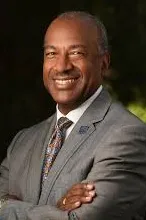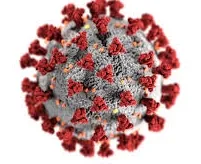
COVID-19 vaccines--in addition to saliva tests and sewage tests--will be covered at the UC Davis COVID Symposium on Wednesday, Jan. 13.
The new addition to the panel is UC Davis Health physician Stuart Cohen, chief of the Division of infectious diseases and director, Hospital Epidemiology and Infection Control, "who is running vaccine trials will answer your questions about vaccines," said UC Davis Distinguished Professor Walter Leal, the organizer and moderator.
Registration is underway at https://bit.ly/2Li9pnV. The public is invited to submit advance questions and also may ask questions during the symposium via the Zoom chat.
“Dr. Cohen is leading a Phase 3 clinical trial of the Novavax vaccine called NVX-CoV2373,” said Leal. “This vaccine has a subunit from the spike protein in SARS-CoV-2, the virus that causes COVID-19, and it's combined with an adjuvant, a boosting agent to improve the body's immune response to the vaccine."
UC Davis Chancellor Gary May will deliver the opening remarks. UC Davis scientists Richard Michelmore, Nam Tran and Heather Bischel will explain the COVID tests underway at UC Davis and the Davis community and answer questions. A new addition to the panel is UC Davis Health physician Stuart Cohen, chief of the Division of infectious diseases and director, Hospital Epidemiology and Infection Control, "who is running vaccine trials will answer your questions about vaccines," Leal said.

Free COVID-19 saliva tests are being administered by appointment to the Davis community--those who live in Davis or work at UC Davis--at testing kiosks on campus. It is a rapid, comprehensive laboratory-developed test that detects whether a person is currently infected with the coronavirus. The UC Davis Genome Center processes the saliva samples. Technically, the test uses a high throughput, real time, quantitative polymerase chain reaction protocol run on machines repurposed from the agricultural genetics industry.
The symposium also will cover how the COVID-19 tests administered in an hospital emergency room or at bedside can distinguish between whether a patient has COVID-19 or the flu. In addition, wastewater surveillance tests, also known as sewage tests, are underway to detect the virus.
Viewers also will learn about “Healthy Davis Together,” a program partnering UC Davis with the City of Davis to prevent the spread of the virus and “to facilitate a coordinated and gradual return to regular city activities and reintegration of UC Davis students back into the Davis community.”
Short Bios
Chancellor Gary May, Ph.D.
He became the seventh UC Davis chancellor on Aug. 1, 2017. A native of St. Louis, Mo., he received his bachelor's degree in electrical engineering from the Georgia Institute of Technology in 1985 and his master's degree and doctorate in electrical engineering and computer science from UC Berkeley in 1987 and 1991, respectively. Prior to becoming the UC Davis chancellor, he served as the dean of the Georgia Tech College of Engineering from July 2011-June 2017 and as the Steve W. Chaddick School Chair of the School of Electrical and Computer Engineering from May 2005-June 2011. His resume also includes executive assistant to Georgia Tech President G. Wayne Clough from 2002-2005.
Heather Bischel, Ph.D.

Bischel holds degrees in civil and environmental engineering. She received a bachelor's degree from UC Berkeley in 2005, a master of science degree from Stanford University in 2007, and a doctorate from Stanford University in 2011. She served as a postdoctoral scientist at the National Science Foundation Engineering Research Center for Reinventing the Nation's Urban Water Infrastructure (2011-2012) and the Laboratory of Environmental Chemistry at the Swiss Federal Institute of Technology (2012-2017).
Richard Michelmore, Ph.D.

Nam Tran, Ph.D.

Stuart Cohen, M.D.

He received his bachelor of science degree from the University of Illinois, Urbana-Champaign, in 1974 and his medical degree from Chicago Medical School in 1978. He completed his residency in internal medicine at the University of New Mexico from 1978-81 and a fellowship in infectious diseases at the UC Davis Medical Center, 1981-1983. He is board-certified by the American Board of Internal Medicine and the American Board of Internal Medicine, Infectious Disease.
This is the fourth in a series of COVID-19 symposiums that Leal has organized and moderated since April. A query from one of Leal's students prompted the Jan. 13 symposium.

